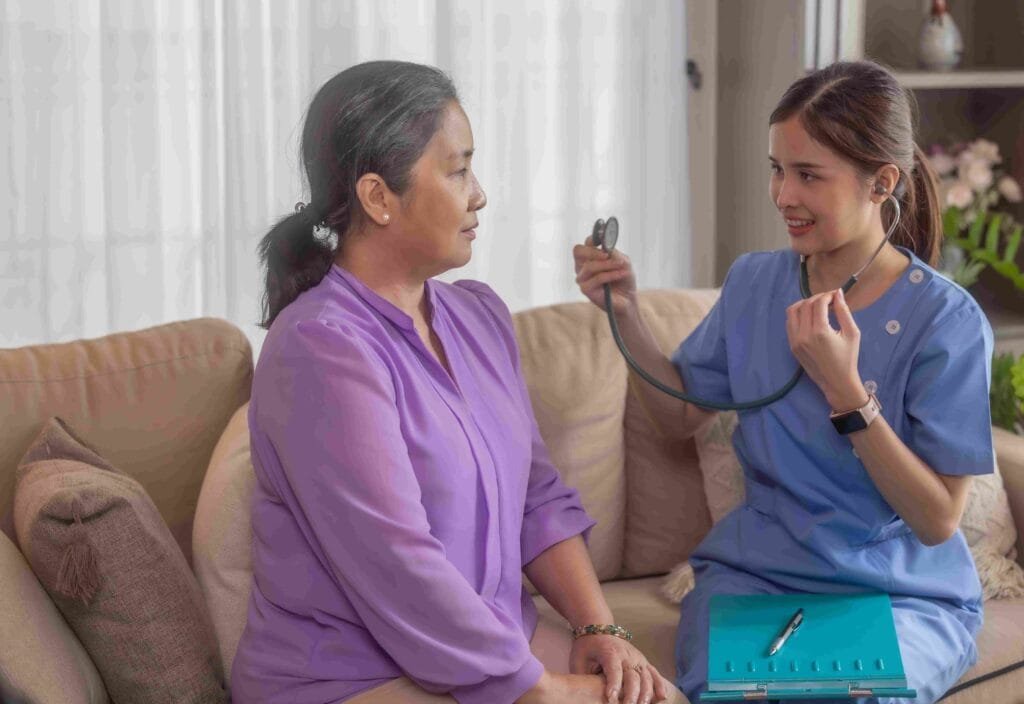
Seniors who want to stay independent while getting emotional support and social interaction need personal companion services. These non-medical care services aim to improve quality of life by helping people make meaningful connections and with their daily tasks.
What Are Personal Companion Services?
Personal companion services help seniors who may be feeling lonely or need extra help with their daily tasks by providing emotional support, social interaction, and help with daily living activities.
Companion services, on the other hand, focus on improving overall health and happiness through companionship and non-medical help.
Scope of Personal Companion Services
- Talking to people and having fun with them
- Help with hobbies and things to do for fun
- Cleaning and cooking light meals
- Getting to appointments and running errands
- Reminders for taking medicine and keeping an eye on your health
- Help with feelings and mental stimulation
Key Benefits of Personal Companion Services
Reduces Social Isolation and Loneliness
Millions of older people are socially isolated, which can put their health at risk in serious ways, such as heart disease, depression, and memory loss. Companion services that let people interact with others regularly help fight loneliness and give people an important emotional connection.
Enhances Mental and Emotional Well-being
Companion caregivers help people feel better by listening to them and being there for them. This help makes people feel less depressed and anxious and helps their mental health get better.
Promotes Physical Health and Safety
Companion services are not medical, but they do help seniors stay active, keep their medication schedules, and go to medical appointments, which is good for their physical health. Caregivers also keep an eye on safety and help people avoid falling.
Provides Peace of Mind for Families
Families feel better knowing that their loved ones are getting regular check-ins and help. This makes things less stressful for the family and makes it easier for them to care for someone from a distance.
Supports Cognitive Function
Seniors can keep their brains working well by doing mental and social activities regularly. Companion caregivers keep their clients’ minds active by having them do puzzles, play games, read, and talk. This helps keep their minds from getting worse.
Types of Personal Companion Services
In-Home Companion Care
Caregivers come to the senior’s house to keep them company and help them with everyday tasks. Seniors can stay independent while getting the help they need with this flexible option.
Live-In Companion Care
Full-time caregivers live with the client and are there for them 24 hours a day, 7 days a week. This all-inclusive choice is perfect for seniors who need constant help and monitoring.
Respite Companion Care
Short-term companion services that give family caregivers a break and some time to rest. This short-term help keeps caregivers from getting burned out and makes sure that care continues.
Specialized Companion Care
Companion services for seniors with certain conditions, like dementia, Alzheimer’s, or the need to recover from surgery. These services come with special training and monitoring plans.
How Personal Companion Services Work
Initial Assessment and Care Planning
The first step is to carefully look at the senior’s needs, wants, and way of life. Care plans are made to meet each person’s unique needs and can be changed as those needs change.
Caregiver Matching Process
Reputable providers carefully match caregivers based on their personalities, interests, and care needs. This process of matching makes sure that people are compatible and helps them make real connections.
Ongoing Monitoring and Communication
Caregivers, families, and care coordinators need to talk to each other regularly to make sure that quality care is being given. Families get news about how their loved one is doing and any changes in their health.

Related Healthcare Services
Skilled Nursing Facility
Skilled nursing facilities offer medical care and rehabilitation services for seniors who need close medical supervision around the clock. These places provide specialized care for people with complicated medical problems and for people who are recovering from being in the hospital.
Respite Care Services
Respite Care Service gives family caregivers a break by providing them with short-term professional care services. This helps keep caregivers from getting burned out and makes sure that seniors always get care.
Elderly Care Services
Full-service Elderly Care services include medical care, help with personal care, and companionship services. These combined services cover all of the needs of seniors, from health care to social support.
Home Care Services
Home care services provide medical and non-medical care in the senior’s own home. This includes help with personal care, nursing care, companionship, and managing the household.
Choosing the Right Personal Companion Service Provider
Key Selection Criteria
- Care providers who are licensed and insured
- Full background checks for all caregivers
- Care plans that can change to meet changing needs
- Prices that are clear and don’t have any hidden fees
- A good reputation in the community and good reviews
- Support is available 24/7 for emergencies.
- Specialized training for taking care of seniors
What to Expect During Care
The goal of personal companion services is to help people build trust and meaningful relationships. Caregivers help seniors regularly while also respecting their independence and dignity. Regular activities include talking, doing fun things, light cleaning, and going to appointments with someone.
Conclusion:
Personal companion services are very important for helping seniors stay independent by giving them emotional support and practical help. These services help people feel less alone, improve their mental and physical health, and give families peace of mind.
Professional Home Health care services at JGC Healthcare can give you or a loved one the personalized help you need to stay independent and have a good quality of life at home.
FAQ’s:
Q: How do companion care and personal care services differ?
Companion care is about socializing and helping with things that aren’t medical, while personal care is about helping with things like bathing, dressing, and hygiene.
Q: Do I need a doctor’s note to get companion services?
No, you don’t need a doctor’s note to use companion services. You can set them up directly with the care provider.
Q: How much do services for personal companions cost?
Prices depend on where you live, how often you need care, and what services you need. There are different ways to pay.
Q: Can you get companion services along with other types of care?
Yes, companion services can be added to medical care, personal care, and other support services to make sure you get all the care you need.
Q: How can I tell if my loved one needs help with companionship?
Some signs are being alone a lot, having trouble with everyday tasks, worrying about safety, or family caregivers who are stressed and burned out.
